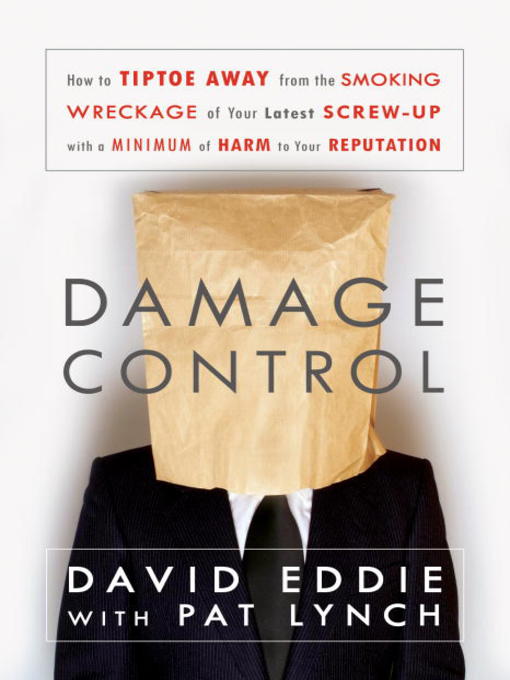
Damage Control
How to Tiptoe Away from the Smoking Wreckage of your Latest Screw-Up with a Minimum of Harm to Your Reputation
کتاب های مرتبط
- اطلاعات
- نقد و بررسی
- دیدگاه کاربران
نقد و بررسی

March 15, 2010
An advice columnist for Canada's The Globe and Mail, Eddie (Housebroken: Confessions of a Stay-at-Home Dad) brings a comical, offbeat approach to trying situations in all aspects of life, including courtship, marriage, family, children, friends, and the workplace. Using his own multitude of screw-ups-in his career, social circle, and married life-along with questions from his print and online readers, Eddie manages to combine direct, no-nonsense advice with an irreverent tone and winding, self-deprecating anecdotes from his life. While enumerating useful and widely applicable Damage Control Rules like "Sometimes, silence is golden, because it is almost impossible to interpret, and you haven't gone on the record one way or another," Eddie also takes time to denounce the man-bashing caricatures on Sex in the City as the reason so many flesh-and-blood women are single, consider the travails of the office hottie, and analyze protocol regarding a couple whose best friends have begun hanging out at a nudist colony. Though serious problems come under the scope, readers will laugh often while learning that there's nothing a person can do, no matter how awful or humiliating, that can't become an opportunity for learning and betterment.

February 15, 2010
Eddie ("Chump Change") and Lynch, who collaborate on the advice column "Damage Control" in the "Globe and Mail", write in the style of "Car Talk" as they present recovery rules for saying/doing stupid things to family members, office mates, or potential dates. Their basic premisethat most people are ready to forgive as long as the offender is humble, hubris-free, and humanis delivered with guy humor that readers will either find entertaining or coarse.
Clinical psychologist McGrath and writer Edwards discuss 11 difficult personality types and offer coping strategies. For every type (e.g., bossiness), they provide key words, typical behaviors, reasons behind the behaviors, and approaches for dealing with the bossy person (e.g., using humor) and ways to change one's own behavior (e.g., use courtesy). While "Damage Control" can help after the fact, "Difficult Personalities" gets to the heart of the matter and offers a real plan for change and coping.
Copyright 2010 Library Journal, LLC Used with permission.

























دیدگاه کاربران